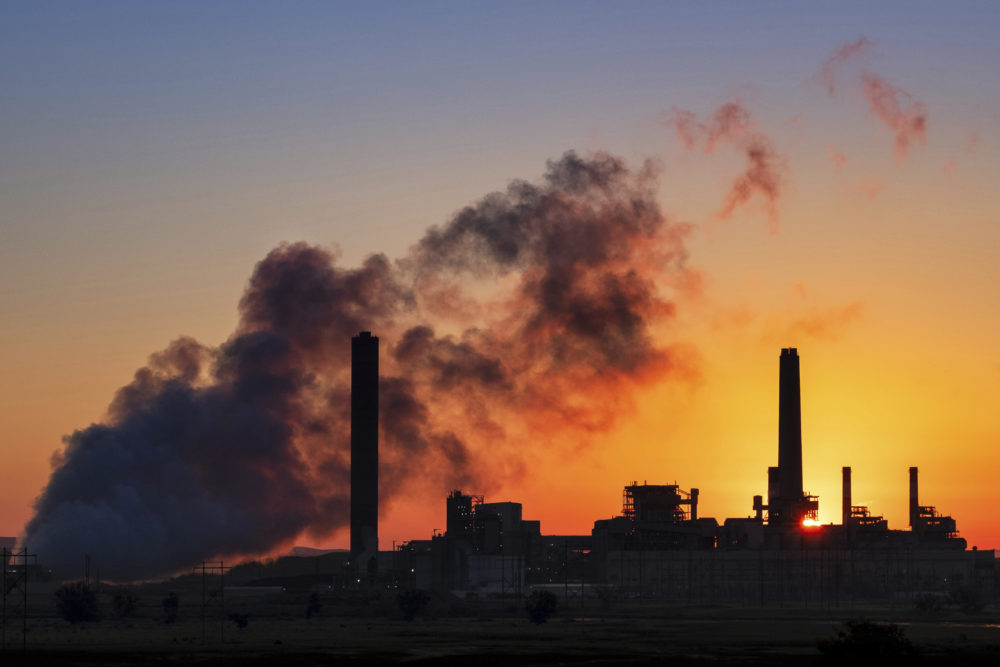Advertisement
Commentary
The Hundreds Of Ways Trump Has Trampled Science

When we heard about President Donald Trump’s DIY hurricane forecasting we felt enraged and shocked. As scientists, we are all too aware that this is hardly the first time the president has said things that are factually incorrect. But there was something different about this lie that felt particularly incredible: it was so flagrant, so easily disprovable.
“Sharpiegate” is already old news (though that hand-drawn scrawl on the map remains absurd). But what it represents — an assault on scientific weather projections, on our safety, resources and democracy -- is serious. Science is a pillar of a healthy democracy. While science doesn’t tell us what to do about issues, it does help us make informed decisions. And it provides a basis for challenging decisions that fail to abide by the “restraint” of facts. Respecting scientific expertise, using evidence to formulate public policy, telling the public the truth about hurricane trajectories — these are the bare minimum standards for a functional society.
The Trump administration’s most recent disregard for science is part of a clear trend. Our colleagues at the Union of Concerned Scientists have catalogued 120 other instances of science being sidelined or outright attacked by the administration. It’s enforcement of existing laws has also declined precipitously.
Respecting scientific expertise, using evidence to formulate public policy ... these are the bare minimum standards for a functional society.
Trump’s government rejected scientific evidence in its decision not to recall a baby stroller that’s been shown to harm children and their parents, limited the collection of information on harmful air pollutants, and restricted public access to climate change research. In a concerted effort to serve the fossil fuel industry rather than the public, it also weakened restrictions on methane emissions, allowed more emissions of toxic air contaminants (including known carcinogens and mercury) and failed to heed to the science on widely-used pesticides that impact child brain development.
The administration is doing this in the name of reducing “needless” regulations. But really, it’s a giveaway, to shift costs from polluters to the public.
Many of these attacks have grave consequences for our health and safety, yet they haven’t received enough attention. If there’s any silver lining to “Sharpiegate,” perhaps it’s this: It’s finally undeniable that upholding the president’s ego is more important than the public good to many who work in the administration.
Just this week, the administration made public its intention to block the ability of California to set vehicle emissions standards at a more stringent level than the federal standards, as the state has done for nearly 50 years. Not only is this ignoring the science on fuel efficiency and climate change, it also goes against decades of legal precedent. And seemingly all because of the president’s ego.
This is just the latest in a string of dangerous moves — the administration’s decision to pull out of the Paris Climate Accords, our withdrawal from the Iran nuclear deal, the repeal of the Clean Power Plan, the deregulation of cancer-causing chemicals. None of these are sound policy decisions, informed by science, or in the public interest.
There is a way to hold leaders accountable for suppressing, denying, censoring and otherwise sidelining science. The Scientific Integrity Act, proposed by Sen. Brian Schatz (D-HI) and Rep. Paul Tonko (D-NY), is now in committee.
The legislation would:
[G]ive scientists who work for government agencies the right to share their research with the public, ensure that government communication of science is accurate, and protect science in policy decisions from political interference. The bill empowers federal scientists to share their personal opinions as informed experts. And the bill prohibits any employee from censoring or manipulating scientific findings.
Call your representative to let them know that you support the act, then ask them to do so as well. Government scientists should be allowed to do their jobs without fear of political repercussions.
This story is part of "Covering Climate Now," a week-long global initiative of over 250 news outlets.

